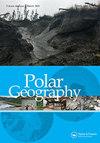在俄罗斯大学教授北极的可持续发展
IF 1.6
Q3 GEOGRAPHY, PHYSICAL
引用次数: 0
摘要
本研究考察了俄罗斯负责培训北极专家的大学如何组织可持续发展(SD)教学。本研究的实证数据来自俄罗斯大学的课程设置和课程大纲。本文讨论了可持续发展课程与大学课程整合的成果和存在的问题。一方面,sd相关学科成为许多自然科学和社会科学培训计划的组成部分。另一方面,可以发现一些问题:首先,很少有课程和项目是基于所谓的可持续发展概念的综合方法,包括可持续性的所有组成部分。第二,并不是所有的联合国可持续发展目标都在大学课程中得到了适当的涵盖。第三,一些大学教师更喜欢弹性而不是可持续性的概念,认为它更现实。第四,许多可持续发展课程和项目往往忽视了关于可持续发展策略的本土知识。第五,并非所有与北极sd相关的大学项目和课程都配备了适当的教材。最后,许多SD课程是纯理论性的,因此,对学生所学知识和技能的实际应用没有很大帮助。本文章由计算机程序翻译,如有差异,请以英文原文为准。
Teaching the Arctic’s sustainable development at Russian universities
ABSTRACT This study examines how teaching sustainable development (SD) is organized in the Russian universities responsible for training specialists for the Arctic. The empirical data for the study are drawn from Russian universities’ curricula and course syllabi. The paper discusses both achievements and problems related to the integration of SD courses into university programs. On the one hand, SD-related disciplines became an integral part of many natural and social sciences training programs. On the other hand, some problems can be identified: First, very few courses and programs are based on the so-called integrated approach to the SD concept which includes all components of sustainability. Second, not all UN Sustainable Development Goals are properly covered by university curricula. Third, some university teachers prefer the concept of resilience rather than sustainability, considering it more realistic. Fourth, many SD courses and programs tend to ignore indigenous knowledge about SD strategies. Fifth, not all Arctic SD-related university programs and courses are properly equipped with teaching materials. Finally, many SD courses are of a purely theoretical character and, for this reason, not very helpful for practical application of knowledge and skills acquired by students.
求助全文
通过发布文献求助,成功后即可免费获取论文全文。
去求助
来源期刊

Polar Geography
GEOGRAPHY, PHYSICAL-
CiteScore
5.30
自引率
0.00%
发文量
13
期刊介绍:
Polar Geographyis a quarterly publication that offers a venue for scholarly research on the physical and human aspects of the Polar Regions. The journal seeks to address the component interplay of the natural systems, the complex historical, political, economic, cultural, diplomatic, and security issues, and the interchange amongst them. As such, the journal welcomes comparative approaches, critical scholarship, and alternative and disparate perspectives from around the globe. The journal offers scientists a venue for publishing longer papers such as might result from distillation of a thesis, or review papers that place in global context results from coordinated national and international efforts currently underway in both Polar Regions.
 求助内容:
求助内容: 应助结果提醒方式:
应助结果提醒方式:


